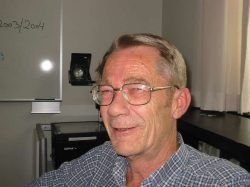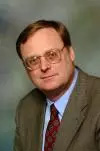The In Memoriam section of the ENBIS website is devoted to ENBIS members who are no longer with us.
In memoriam
Henry Wynn
19 February 1945 – 2 November 2024

Professor Henry Wynn passed away on 2 November 2024, at the age of 79. Henry was a central figure in ENBIS. He served as the first President of ENBIS (2000-2001) and was awarded the Box Medal in 2011.
The seeds for ENBIS germinated from the pro-ENBIS thematic network funded by the EU under Framework 5. One of the activities was to organise the Industrial Statistics in Action conference in 2000. It was held in Newcastle and attracted many small to medium enterprises. Henry kindly agreed to be the master of ceremonies and did an excellent job. The first ENBIS conference followed one year later in Oslo. Of special note was Henry’s speech at the conference dinner, where he laid out a vision for ENBIS to balance interests in theory and applications.
Henry was an outstanding scholar with wide-ranging expertise. He was active in many areas of industrial and engineering statistics. He had a great ability to see problems in a very general theoretical context. At the same time, he was involved in many applications and had a fine eye for the nuances that arise in all applied problems. He was a stimulating research partner and his enthusiasm for discovery and new insight were infective. Henry was also a lively spirit and a great companion. He was often surrounded by interesting people and conversations with him ranged from beer to research projects to the deep philosophical basis of statistics. Henry will be missed by all who knew him.
Henry Wynn began his academic career at Imperial College, London where he was reader for two years and then Head of Statistics. He then assumed a Professorship in Statistics at City University, London, where he was Dean of the School of Mathematics, Actuarial Science and Statistics and was co-Director of the Engineering Design and Quality Centre. He helped launch an MSc program in Quality Improvement and System Reliability, the first advanced course of its kind in the UK. He joined the University of Warwick in 1995, heading the Warwick Risk Initiative and Statistical Consultancy Unit, which carried out research in industrial statistics, risk-related areas and new methodologies. The Unit was active in industrial work, with considerable hands-on experience in the automotive, aeronautical and process sectors.
In 2003 he was appointed Professor of Statistics at the London School of Economics, where he led his own research group, the Decision Support and Risk Group (DSRG), and was a co-Director of the Centre for the Analysis of Time Series (CATS). He was head of the Department of Statistics from 2003 to 2006 and from 2000 to 2005 was also part-time Scientific co-Director of EURANDOM, the international stochastics institute attached to Eindhoven Technical University (TUE), in the Netherlands.
Henry Wynn also served as President of the Royal Statistical Society (RSS) and received the Guy Medal in Silver from the RSS in 1982. He was an Honorary Fellow of the Institute of Actuaries and a Fellow of the Institute of Mathematical Statistics.
Henry was a prolific researcher in statistics, with over 300 peer-reviewed publications. His interests were very broad, including experimental design, system reliability, computer experiments, dynamical search, algebraic statistics, and risk. His early research on algorithms for finding optimal designs was instrumental in launching the field of computer-generated design. He was also among the leaders in bringing experimental design to the exploration of computer simulation codes. He carried out path-breaking work relating search and optimization algorithms to dynamical systems, which paved the way to proving convergence rates. Henry and his colleagues pioneered the use of computational algebraic geometry in statistics, and in particular in experimental design. He made important contributions to the study of robust design, risk and reliability. Henry was a partner in many applications in industry and engineering, notably in the area of robust engineering design. In 2021, he published a societal critique with the book Against Sacrifice: An essay on risk and ethics.
Henry is survived by two sons Hamish and Robin, by his first wife Sandra, and was happily married for over thirty years to his second wife, the distinguished photographer Jan Baldwin.
David Steinberg
Alessandro Di Bucchianico
17 March 1963 – 8 July 2024
Alessandro Di Bucchianico, a founding member and past director or ENBIS passed away on Monday, July 8th, 2024, at the age of 61.
Alessandro was a friend and colleague. His Italian name was misleading as he was totally Dutch. He was able to combine sharp understanding, humility and effectiveness at both the technical and management level. Some examples follow:
Academic domain
Alessandro’s main research interests were in statistical process control, hardware and software reliability, experimental design, and statistical software. He was able to combine applied and theoretical perspectives in a range of applications. He was also an R appassionato and expert. A sample of his publications is listed below.
- Kenbeek, T., Kapodistria, S., & Di Bucchianico, A. (2019, March). Data-driven online monitoring of wind turbines. In Proceedings of the 12th EAI international conference on performance evaluation methodologies and tools(pp. 143-150).
- Di Bucchianico, A., Einmahl, J. H., & Mushkudiani, N. A. (2001). Smallest nonparametric tolerance regions. Annals of statistics, 1320-1343.
- Di Bucchianico, A., Figarella, T., Hulsken, G., Jansen, M. H., & Wynn, H. P. (2004). A Multi‐scale Approach to Functional Signature Analysis for Product End‐of‐life Management.Quality and Reliability Engineering International, 20(5), 457-467.
- Ton, B., Basten, R., Bolte, J., Braaksma, J., Di Bucchianico, A., van de Calseyde, P., … & Stoelinga, M. (2020). PrimaVera: Synergising predictive maintenance. Applied Sciences, 10(23), 8348.
- Rocchetta, R., Zhan, Z., van Driel, W. D., & Di Bucchianico, A. (2024). Uncertainty analysis and interval prediction of LEDs lifetimes. Reliability Engineering & System Safety, 242, 109715.
The list shows the contribution of an accomplished modern statistician, who likes to work in collaboration with others, in a range of applications ranging from theoretical to applied studies.
Management domain
Alessandro accepted, in 2007, to become Director of the Permanent Office of ENBIS, the European Network of Business and Industrial Statistics. This was a particularly critical period for ENBIS. As President of the society in that period, I need to emphasize his major contribution to move the society, in tempestual times, to safe and solid docks. Our current society owes him a lot. He laid the foundations for it operations and long term activity.
Alessandro was also one of the coordinators of the Industrial Statistics programme at the European research institute, Eurandom, from 1999 to 2009. Eurandom was a major player on the European applied statistics field.
At TUE, Alessandro laid the foundations for a Data Science program with impact both on the pedagogical and research level.
Personal notes
Out of many interactions over the years, I chose to briefly describe four of them
- The 13th European conference of Mathematics in Industry was held at Eurandom in 2004. A major event planned and organised by Alessandro. This was the first time I become aware of Alessandro’s outstanding abilities as planner and organiser. He was also the editor of an outstanding Springer volume the was based on papers presented at the event.
- “Data analytic for Engineers” was chosen in 2020 as a compulsory course for all first year engineers at TUE and Alessandro was in charge of it. We had many conversations on how to approach such an important assignment and, together with his students, Natalia Sidorova and Robin Persoons, implemented a pedagogical methodology focused on conceptual understanding. Quite a unique emphasis in Data Science programs offered now everywhere.
- Alessandro was instrumental in setting up the Eindhoven Data Center at TUE. This unique cross discipline platform permits to effectively address multidisciplinal problems. In 2017, He invited me to give a talk there on The Information Quality Framework for Evaluating Manufacturing 4.0 Analytics. The heterogeneous and curious audience made it a memorable event.
- Alessandro was a dedicated teacher and a Statistician committed to disseminate the tools and methods of Statistics. As an example, in Wiley’s electronic Statistical Encyclopedia, StatsRef he contributed the following entries:
- Coefficient of Determination (R2)
- Pooled Variance, Pooled Estimate
- Sum of Squares
- Measures of Location
- Pareto Chart
- Measures of Scale
This brief sketch was designed to outline the personality and work of Alessandro Di Bucchianico. He will be dearly missed.
Ron S. Kenett
Tony Greenfield
26 April 1931 – 19 March 2019
I first met Tony at a meeting in Amsterdam, just after the ENBIS launch meeting. My plane was delayed and I entered the meeting room late trying not to interrupt, there were around twelve people (I knew about half of them). Tony’s white hair and friendly smile caught immediately my attention. Just a bit later, what attracted me was his willingness to help and his wisdom. At that point I could not imagine that we would collaborate developing a DOE simulator (the aluminum wheels simulator) during the Pro-ENBIS project, and that this would lead to have him at UPC delivering regularly a very successful course about statistical technical writing in our Statistics Master Program. Students loved the course and loved Tony.
This annual visits gave place to conversations and discussions (for me, lessons) and to a friendship that I really value. I cannot say why, but Tony’s scientific vision of the world along with his enthusiasm and positivism always made me think of the great British scientists of the late XIX and early XX centuries. I felt almost like having two or three annual dinners with Darwin or Lord Kelvin.
Tony was an important node in our network, we have been very lucky to have him and we will miss him very much.
I cannot finish any other way than being faithful to Tony’s essence: Cheers!
Xavier Tort-Martorell
Søren Bisgaard
17 June 1951 – 14 December 2009
Statistical profession lost one of its giants.
ENBIS lost one of its founding fathers.
I lost a mentor and a friend.
We will honor the memory of Søren Bisgaard
at the ENBIS 10th Anniversary Conference in Antwerp.
Irena Ograjenšek
President of ENBIS
Tribute to Søren Bisgaard
Søren Bisgaard died on December 14, 2009, at the age of 58 years. We will remember him as a warm and giving person, a great and inspiring teacher, a good scientist, and a best friend.
Søren was an individual who had an established record of contributions, not only to the quality profession and industrial statistics, but to society as well. His publication list is exceptional with many articles in the most important scientific journals like Technometrics, Science, Quality and Reliability Engineering International, Journal of the Royal Statistical Society, Journal of Quality Technology, and Quality Engineering. His major contributions are in the area of Design of Experiments but also in Operations Management, Healthcare Engineering, Time Series and Lean Six Sigma.
He was recognized for these contributions by several awards such as Shewell Award (1981 and 1987), Brumbaugh Award (1988, 1996 and 2008), Ellis R. Ott Award (1990), Wilcoxon Prize (1998) and Shewhart Medal (2002), William G. Hunter Award (2002), George Box Award (2004), W. J. Youden Memorial Address (2005), and Cecil C. Craig Award (2006).
Søren Bisgaard became an elected Fellow of the American Statistical Association in 1997, a Fellow of the American Society for Quality in 2002, and an Academician of the International Academy for Quality in 2007. This can only be achieved by someone with extraordinary contributions in our field of expertise.
Since 1997 Søren Bisgaard had been a Professor. From 1997 through 1998 in the Department of Industrial Engineering at the University of Wisconsin, Madison. From 1999 through 2000 in the Department for Quality Management and Technology at the University of St. Gallen, Switzerland. In 2000 Søren decided to return to the United States to become the Eugene M. Isenberg Professor in Integrative Studies as well as Professor of Technology Management at the University of Massachusetts Amherst. We were happy that he also accepted a part-time professorship in the area of Industrial Statistics at the University of Amsterdam in 2001.
In Europe Søren was the founding father of the European Network for Business and Industrial Statistics (ENBIS), a society with now more than 1000 members from business and academia. In the United States he was involved in many professional services, e.g. associate editorships (Journal of Quality Technology, Technometrics, and Quality Engineering), memberships of committees of the American Society for Quality and American Statistical Association, and reviews of several organizations.
Søren Bisgaard was also a very good teacher and a great public speaker. Most of us attended his talks during the ENBIS conferences and were impressed by the way he was able to translate theory to practice.
Søren’s professional and personal contributions provided a solid basis for ENBIS to grow and expand.
Our hearts are with his wife Sue Ellen and all their good friends. We lost a giant in our profession. We will honor him at the tenth (anniversary) annual conference of ENBIS in Belgium.
It was a real privilege to work with him.
Ronald Does and Jeroen de Mast
At Søren‘s request, contributions in his honor may be made to The International Mesothelioma Program at http://www.impmeso.org or to the European Network for Business and Industrial Statistics.
Poul Thyregod
10 May 1939 – 9 July 2008

Poul Thyregod (1939 – 2008) was a Professor of Industrial Statistics at the Technical University of Denmark, President of ENBIS in 2003-2004, a keynote speaker at ENBIS-3 in Rimini (Italy), a Conference Chair of ENBIS-4 in Copenhagen (Denmark) and a recipient of the Box Medal at ENBIS-7 in Dortmund (Germany).
Poul was a student of Anders Hald, a Professor Emeritus of the Institute for Mathematical Sciences at the University of Copenhagen. Hald authored a landmark book on Statistical Theory of Sampling Inspection by Attributes (Academic Press, 1981) that includes Poul’s earlier work on Bayesian Sampling (Thyregod, P.: Bayesian single sampling acceptance plans for finite lot sizes. Journal. Roy. Statist. Soc., B 36, 1974 pp. 305-319).
Following the work of Poul is a fascinating journey into the application of statistics. At ENBIS-3 in Rimini (Italy), he presented the now famous ice cream example showing how understanding the context enables children to provide critical insights into data analysis. The data consists of daily ice cream sales in Denmark. The question is what days are Sundays. Danish kids know that on Sundays they go out with their parents to buy ice creams. When in possession of this information, associating peak sales with Sundays is trivial (see Kenett, R. and Thyregod, P.: “Aspects of statistical consulting not taught by academia”, Statistica Neerlandica, 60, 3, pp. 396-412, August 2006).
Poul contributed to our profession in many ways. The list of his publications is very long and includes articles in journals such as International Statistical Review, Journal of Applied Statistics, Journal de Physique, Journal of Chemometrics, Journal of Quality Technology, Journal of the Royal Statistical Society (Series B), Journal of Statistical Computation and Simulation, Quality and Reliability Engineering International, Scandinavian Journal of Statistics, and Technometrics.
The ability to work with engineers and scientists, to be part of the discovery process, and to be able to communicate so clearly what statistics is all about, is clearly a gift. Poul had that gift. His career is a prime example demonstrating how statistics develops by integrating theory and applications. We are all very proud to have had him as our 2007 Box Medalist and to have had him as our president.
Ron S. Kenett
Irena Ograjenšek

